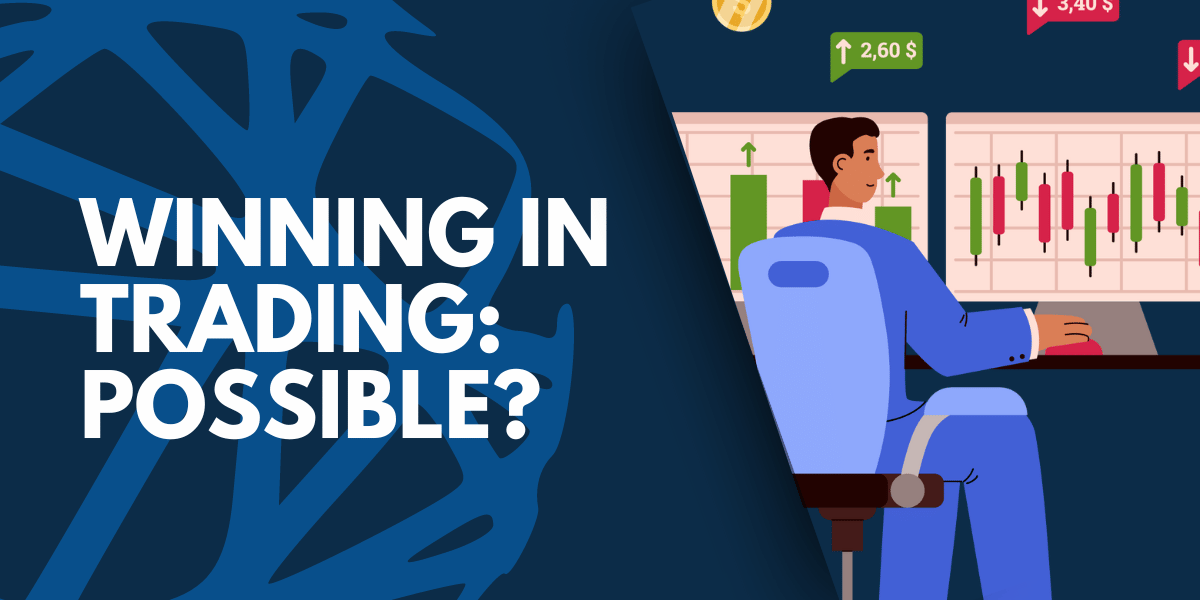Trading is a game of probability
Increase your probability of winning.

Trading is a game of probabilities. You can be right or wrong. The key is to get most things right or at least increase your probability of winning. Sell high, buy low, sounds easy right? But there's more to it than meets the eye. At the heart of successful trading is the concept of expectancy—the average amount you can expect to make (or lose) per trade over time. Let us try to explain.
The Market Edge
The Market Edge For instance, in American roulette, there are 38 pockets (including two zeros), which gives you a win probability of about 47% when betting on black. Even with a slight difference in European roulette (with only one zero), your win probability increases only to about 48.6%. These small differences matter. In American roulette, with its higher house edge, you would statistically lose $5 for every $100 bet over time. In roulette, the house edge means the game is slightly tilted against you. In trading, the “market edge” could be thought of as the natural volatility and unpredictability of the markets. In short, losses are part of the game, and you have to be okay with that. If you don’t have a solid trading strategy with a positive expectancy, this “market edge” will work against you much like the house edge in roulette. So, how do successful traders manage this?
Expectancy: Understand Your Risk and Reward Ratio (RRR)
In both trading and roulette, what matters is not the outcome of any single bet or trade, but the average outcome over many bets or trades. In trading, you want a strategy where, on average, you make more money than you lose.
For experienced traders, you probably know this is one of the crucial fundamentals in trading. For example, a strategy with a 2:1 risk-reward ratio means you make $2 for every $1 you risk. Even if you only win 40% of the time, you can still be profitable in the long run because your winners are bigger than your losers.
Let's say, the target is 60 pips, you are risking 30 pips with a 2:1 RRR. This means if you win one trade (earning 60 pips) but lose two others (losing 30 pips each), you don’t lose money overall. You need a win rate of at least 33% to stay at break-even. A little bit higher %, then you can have a profit.
Know That You Are Susceptible to Emotional Trading
Many will say that trading is just about numbers, but that’s not entirely true. Yes, they are numbers, but when you add a human into the mix, they’re no longer just numbers. The digits on the screen become something much more personal—your family’s future, your dreams and aspirations, or for some, even tomorrow’s meal. As a rule of thumb, only trade your extra funds. And when you feel that itch to over-leverage, because you feel you're one trade away from the big win or are tempted to go against your strategy, most of the time, the best decision is to pause.
Keep a journal
It may sound cliche, but you cannot improve something you cannot measure. The beauty of journaling is you are keeping accounts of your performance, and it really helps you stick with your strategy and maintain healthy trading psychology. There's a saying, don’t just discard your costly errors—learn from them. Write them all down.
Having a community of traders can help you with your journey
It’s easy to get hooked on those charts, and after a week of constant monitoring, it can start to feel isolating. That’s a recipe for overtrading and overthinking. To elevate your trading game, seek out like-minded communities where you can exchange fresh ideas and get support from people who truly understand the trader’s journey.
Wishing you all the best on your trading adventure—keep learning and growing. Stay tuned for more content, and remember, you’re not alone in this!
The information provided in this content is for educational and informational purposes only. It does not constitute financial advice or a recommendation for any specific trading strategy. Trading involves risk, and you should carefully consider your own financial situation and seek professional advice before making any trading decisions.